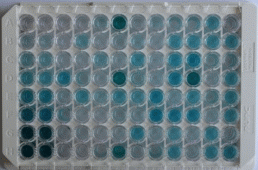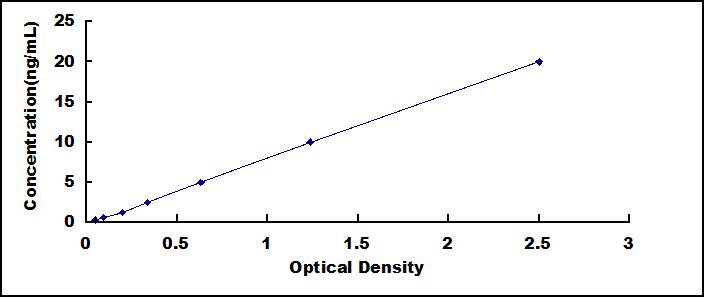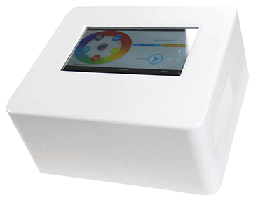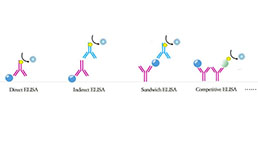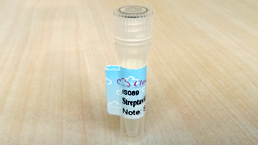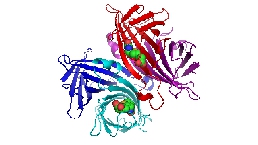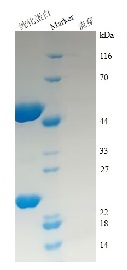Packages (Simulation)

Reagent Preparation

Image (I)
Image (II)
Certificate


ELISA Kit for Collagen Type II (COL2)
- Product No.SEA572Rb
- Organism SpeciesOryctolagus cuniculus (Rabbit) Same name, Different species.
- Sample Typeserum, plasma, tissue homogenates and other biological fluids
- Test MethodDouble-antibody Sandwich
- Assay Length3h
- Detection Range0.312-20ng/mL
- SensitivityThe minimum detectable dose of this kit is typically less than 0.117ng/mL.
- DownloadInstruction Manual
- UOM 48T96T 96T*5 96T*10 96T*100
- FOB
US$ 479
US$ 684
US$ 3078
US$ 5814
US$ 47880
For more details, please contact local distributors!
Specificity
This assay has high sensitivity and excellent specificity for detection of Collagen Type II (COL2).
No significant cross-reactivity or interference between Collagen Type II (COL2) and analogues was observed.
Recovery
Matrices listed below were spiked with certain level of recombinant Collagen Type II (COL2) and the recovery rates were calculated by comparing the measured value to the expected amount of Collagen Type II (COL2) in samples.
| Matrix | Recovery range (%) | Average(%) |
| serum(n=5) | 90-98 | 95 |
| EDTA plasma(n=5) | 86-99 | 94 |
| heparin plasma(n=5) | 96-105 | 101 |
Precision
Intra-assay Precision (Precision within an assay): 3 samples with low, middle and high level Collagen Type II (COL2) were tested 20 times on one plate, respectively.
Inter-assay Precision (Precision between assays): 3 samples with low, middle and high level Collagen Type II (COL2) were tested on 3 different plates, 8 replicates in each plate.
CV(%) = SD/meanX100
Intra-Assay: CV<10%
Inter-Assay: CV<12%
Linearity
The linearity of the kit was assayed by testing samples spiked with appropriate concentration of Collagen Type II (COL2) and their serial dilutions. The results were demonstrated by the percentage of calculated concentration to the expected.
| Sample | 1:2 | 1:4 | 1:8 | 1:16 |
| serum(n=5) | 78-98% | 93-103% | 89-103% | 82-95% |
| EDTA plasma(n=5) | 93-104% | 84-103% | 80-105% | 93-101% |
| heparin plasma(n=5) | 79-90% | 82-102% | 91-105% | 95-104% |
Stability
The stability of kit is determined by the loss rate of activity. The loss rate of this kit is less than 5% within the expiration date under appropriate storage condition.
To minimize extra influence on the performance, operation procedures and lab conditions, especially room temperature, air humidity, incubator temperature should be strictly controlled. It is also strongly suggested that the whole assay is performed by the same operator from the beginning to the end.
Reagents and materials provided
| Reagents | Quantity | Reagents | Quantity |
| Pre-coated, ready to use 96-well strip plate | 1 | Plate sealer for 96 wells | 4 |
| Standard | 2 | Standard Diluent | 1×20mL |
| Detection Reagent A | 1×120µL | Assay Diluent A | 1×12mL |
| Detection Reagent B | 1×120µL | Assay Diluent B | 1×12mL |
| TMB Substrate | 1×9mL | Stop Solution | 1×6mL |
| Wash Buffer (30 × concentrate) | 1×20mL | Instruction manual | 1 |
Assay procedure summary
1. Prepare all reagents, samples and standards;
2. Add 100µL standard or sample to each well. Incubate 1 hours at 37°C;
3. Aspirate and add 100µL prepared Detection Reagent A. Incubate 1 hour at 37°C;
4. Aspirate and wash 3 times;
5. Add 100µL prepared Detection Reagent B. Incubate 30 minutes at 37°C;
6. Aspirate and wash 5 times;
7. Add 90µL Substrate Solution. Incubate 10-20 minutes at 37°C;
8. Add 50µL Stop Solution. Read at 450nm immediately.
GIVEAWAYS
INCREMENT SERVICES
| Magazine | Citations |
| Oncogene | Elevated PLGF contributes to small-cell lung cancer brain metastasis PubMed: 22797069 |
| Experimental Biology and Medicine | Acidic pH conditions mimicking degenerative intervertebral discs impair the survival and biological behavior of human adipose-derived mesenchymal stem cells Rsmjournals: Source |
| PLoS ONE | A Combinatorial Relative Mass Value Evaluation of Endogenous Bioactive Proteins in Three-Dimensional Cultured Nucleus Pulposus Cells of Herniated Intervertebral Discs: Identification of Potential Target Proteins for Gene Therapeutic Approaches Plosone: Source |
| Stem Cell Research Therapy | Protein synthesis and secretion in human mesenchymal cells derived from bone marrow, adipose tissue and Wharton's jelly Pubmed: 24739658 |
| Spine (Phila Pa 1976). | No effects of Hyperosmolar Culture medium on Tissue Regeneration by Human Degenerated Nucleus Pulposus Cells despite Upregulation Extracellular Matrix Genes. Pubmed:25856264 |
| PLoS One. | Mesenchymal stromal cell proliferation, gene expression and protein production in human platelet-rich plasma-supplemented media Pubmed:Pmc4130592 |
| Materials Science and Engineering: C | Co-electrospun gelatin-poly (l-lactic acid) scaffolds: modulation of mechanical properties and chondrocyte response as a function of composition Pubmed:24433895 |
| 義守大學生物技術與化學工程研究所學位論文 | 可拋棄式退化性關節炎電化學式尿液免疫感測器之研究 Electrochemical Immunosensor Detection of Urinary Biomaker for Osteoarthritis Diagnosis Publication: U0074-2807201500521300 |
| Biomed Rep | Expression and significance of telomerase in the nucleus pulposus tissues of degenerative lumbar discs PubMed: 26623021 |
| Macromolecular Bioscience | Highly Porous Gelatin Reinforced 3D Scaffolds for Articular Cartilage Regeneration PubMed: 25787871 |
| Biol Res | The role of MCP-1-CCR2 ligand-receptor axis in chondrocyte degradation and disease progress in knee osteoarthritis PubMed: 26578310 |
| Cell Proliferation | Effects of low oxygen tension on gene profile of soluble growth factors in co‐cultured adipose‐derived stromal cells and chondrocytes Pubmed:27090063 |
| 中国眼耳鼻喉科杂志 | 白细胞介素10 上调表达对家兔慢性细菌性鼻窦炎黏膜创伤修复的影响 article:11593 |
| Biomedical Materials | An innovative co-axial system to electrospin in situ crosslinked gelatin nanofibers. Pubmed:26987305 |
| Scientific Reports | Chondrogenic Potential of Peripheral Blood Derived Mesenchymal Stem Cells Seeded on Demineralized Cancellous Bone Scaffolds pubmed:27821864 |
| PLoS One. | Self-complementary adeno-associated virus serotype 6 mediated knockdown of ADAMTS4 induces long-term and effective enhancement of aggrecan in degenerative human nucleus pulposus cells: A new therapeutic approach for intervertebral disc disorders. pubmed:28207788 |
| Polymers | Microsphere-Based Hierarchically Juxtapositioned Biphasic Scaffolds Prepared from Poly(Lactic-co-Glycolic Acid) and Nanohydroxyapatite for Osteochondral Tissue Engineering 2073-4360:8 |
| PLOS ONE | Knockout of Apolipoprotein E in rabbit promotes premature intervertebral disc degeneration: A new in vivo model for therapeutic approaches of spinal disc disorders 10.1371:journal.pone.0187564 |
| PLoS One | Self-complementary adeno-associated virus serotype 6 mediated knockdown of ADAMTS4 induces long-term and effective enhancement of aggrecan in degenerative human nucleus pulposus cells: A new therapeutic approach for intervertebral disc disorders 10.1371:journal.pone.0172181 |
| Platelets. | Platelet-rich concentrate in serum-free medium enhances cartilage-specific extracellular matrix synthesis and reduces chondrocyte hypertrophy of human mesenchymal stromal cells encapsulated in alginate. pubmed:29090639 |
| Molecular Medicine Reports | Effects of GGCX overexpression on anterior cruciate ligament transection-induced osteoarthritis in rabbits Pubmed:29257344 |
| Journal of Materials Science | Scaffolds modified with graphene as future implants for nasal cartilage |
| Processes | A Novel Method to Optimize Autologous Adipose Tissue Recovery with Extracellular Matrix Preservation |
| Catalog No. | Related products for research use of Oryctolagus cuniculus (Rabbit) Organism species | Applications (RESEARCH USE ONLY!) |
| PAA572Rb51 | Polyclonal Antibody to Collagen Type II (COL2) | WB |
| LAA572Rb71 | Biotin-Linked Polyclonal Antibody to Collagen Type II (COL2) | WB; IHC; ICC. |
| SEA572Rb | ELISA Kit for Collagen Type II (COL2) | Enzyme-linked immunosorbent assay for Antigen Detection. |
| LMA572Rb | Multiplex Assay Kit for Collagen Type II (COL2) ,etc. by FLIA (Flow Luminescence Immunoassay) | FLIA Kit for Antigen Detection. |

